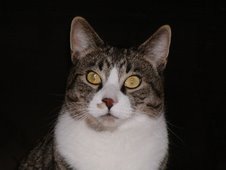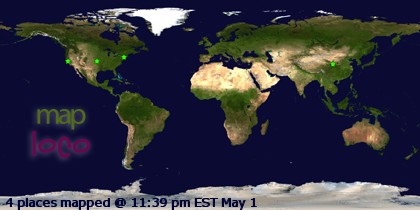Rather than go canoeing, we “slept in” until 7:15 AM. We had breakfast and a leisurely few hours to poke around the Felix Unite camp.
 |
| The welcome sign |
 |
| Cash in the campground area |
 |
| Across the lawns |
There are lots of birds here.
 |
| Bank swallows |
 |
| Nest protection |
 |
| Sparrow like something |
 |
| Cormorants |
 |
| Fish Eagle, much like a Baldie |
 |
| A weaverbird, I think |
 |
| More sparrow-like guys |
We decided to wander to the river to watch the folks who did go canoeing paddle in – and saw a crab while waiting.
 |
| Food for someone |
 |
| The team comes paddling in |
 |
| Lining up for the rapids |
 |
| Pieter driving hard |
 |
| Looking like he's done this before |
 |
| Um, Pieter, look where you're going! |
 |
| Ophielie and Laban paddle by |
 |
| Ophielie the pro |
 |
| Vickie & Isaac with their version of "teamwork" |
 |
| Looking "competent" |
 |
| Shooting the chutes |
 |
| Docked |
On our way to the rapids, a shepherd and his flock of goats and sheep walked by. The cool part was he was just walking, and his dog was managing the flock about 50 m behind him. The shepherd walked by us. The goat dog took one sniff and led the herd around us without any input from the shepherd.
 |
| Goatherd and non-working dogs first, goat dog and goats follow |
 |
| The goat dog checks us out... |
 |
| ...and steers the whole herd away, giving us a wide berth |
 |
| Mountain climbing goats |
 |
| Stragglers |
 |
| And off they go |
After having an early lunch at Felix Unite, we headed down the road, through a desert.
 |
| Nothing |
 |
| Tarmac to nowhere |
 |
| On and on into nothingness |
 |
| Visibility - 150 miles |
 |
| Nice road, though |
There was green visible, but it was a long way off. And yet -- just a short walk into the desert showed lots of tracks. Bugs & insects. Two-toed ungulates. Snakes. The desert looks barren, but isn't on a micro scale.
 |
| Nothing in the mountains, either. |
We saw an alluvial fan that was just erosional, not by water.
 |
| Very cool |
We passed what was obviously an airstrip, though if you can tell me where the strip is, we’ll both know.
 |
| I guess where it's flat, you can land anywhere |
The, suddenly, we drove into a HUGE vineyard complex run by the Namibia Grape Company, all irrigated by the Orange River.
 |
| A lot of green in a sea of brown |
 |
| Thousands of acres of grapes |
Workers are needed to work these fields, and many are migrant, but some live here permanently. These are their “houses”.
 |
| Grass thatch huts |
 |
| Placed randomly |
 |
| Hilsides are OK |
Yes, that’s an entire town of ~5,000 people living in thatched huts that are 3 m by 3 m.
Then it was more desert.
 |
| Someone ironed the land |
 |
| Wow! Vegetation! |
 |
| More nothing |
 |
| Roads to nowhere |
It did “green up” from time to time, and when it did, we found things like ostriches, oryx and kudu.
 |
| Ostrich |
 |
| Oryx hiding in the deadly poisonous grass |
We stopped to explore this space
 |
| Desolate |
 |
| With life |
 |
| The Quiver Tree, a fascinating aloe tree |
That tree is critical to survival in the desert for many animals; it has water in it's outer skin and leaves that animals eat in times of extended drought.
Namibia Parks has it’s own company to manage resorts in their parks, called NWR, or Namibian Wildlife Resorts. This was an NWR campground on the way to the Fish River Canyon
 |
| The camping guys stayed here |
Fish Canyon itself is like the Grand Canyon in many ways, but has less colour. It was formed the exact same way: an uplift area where a river already existed.
 |
| 550 m deep |
 |
| 27 km wide |
 |
| 160 km long |
 |
| Spectacular erosional features |
 |
| Who would want to go in there? |
 |
| Very Grand Canyon-like |
We got to go on a 2 km hike along the rim. Unlike the Grand Canyon, there are absolutely no safety railings.
 |
| Don't go near the edge |
 |
| An aloe indigenous to the area |
If you’re into such things, there’s a “popular” 80 km hiking trail descending from this point to the river, and running down stream to the next road. It takes 5 days to do.
The sun was setting on the way to our home for the night.
 |
| Dramatic light |
And in the setting sun, we saw a herd of mountain zebra. This particular sub-species of zebra is endangered and the ones around here are the only ones left. Here, in a protected space, they’re doing OK.
 |
| Golden zebra? |
 |
| Bored of us, they walk off |
Our home for the night in the middle of the desert was the /’Ai-/Ais Hot Springs Resort.
 |
| The welcome signs |
Yep, hot springs in a desert. And they’re 60°. Our rooms were lovely and right off the indoor hot pools.
 |
| Hot tubs in front of our balcony |
Accommodations on this trip are wicked.
=================
Today’s Africa Travel Tip: Poisonous stuff
Don’t know why, but the desert is full of poisonous things. Most things you look at can hurt you. The desert has lots of snakes, plus scorpions. Even the plants can be very poisonous. This common plant, for instance, exudes a milky white sap when broken that is deadly, and if you burn it in a fire, the fumes can kill you, too.
 |
| Evil |
And yet, rhino and antelope eat it without issue. So the desert is only poisonous to us.



































































No comments:
Post a Comment